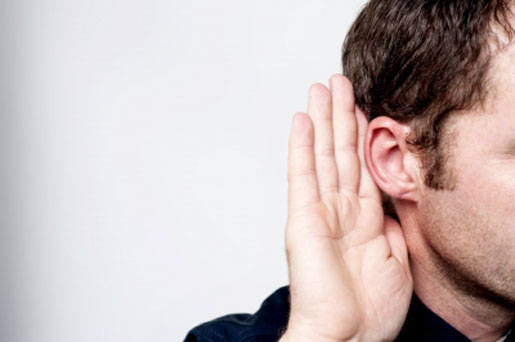Audio and voice-controlled platforms are already a major trend among consumers. When will hearables become part of the medical device and healthcare realm? Sooner than you think.
June 6, 2017

Audio and voice-controlled platforms are already a major trend among consumers. When will hearables become part of the medical device and healthcare realm? Sooner than you think.
Marie Thibault

Many of us already have hearable, voice-controlled devices at home, reminding us to pick up milk and answering our trivia-like questions. But when will similar applications become commonplace in the medical field?
In fact, hearables are already becoming part of the medical environment. As MD+DI has reported, Boston Children's Hospital has incorporated Alexa-enabled Amazon devices to give clinicians basic reference information and guide users through specific care protocols.
In late May, software company Orbita, Inc. and technology company ERT announced a joint effort to use the Orbita Voice offering and ERT EXPERT technology platform for clinical trials. According to a press release, the result is a tool that will allow patients and other stakeholders to take surveys and complete activities using voice.
"Voice-based UI (user interface) innovations have huge implications for the healthcare industry, particularly in areas where patient participation, interaction, and engagement is critical to the market success of digital health solutions and services," Harry Wang, senior director of research at Parks Associates, said in the same release. "This collaboration between Orbita and ERT is a clear example of voice recognition technology's potential in healthcare and we expect many more use cases that incorporate voice UI to emerge."
In an interview with MD+DI earlier this year, Stuart Karten, president of Karten Design, discussed the question of when medical devices would incorporate hearable elements. "I don't think it's that far off," he said. "I'm thinking in three to five years we would start to see it. I see [hearables] happening as any technology would, sort of titrating their way in."
Karten was part of a panel at the South by Southwest (SXSW) Conference and Festivals in March, discussing "Hearables and the Age of Mediated Listening." He told MD+DI in an interview after SXSW that a voice-powered platform has the potential to encourage behavior change, provide coaching, improve medication compliance, and prove useful in the operating room.
"I think as we watch this world of wearables and medical devices start to mash up, I believe that interface that's going to help people through multiple situations is going to be the audio interface," Karten said.
Hearables can be thought of broadly as devices that allow user interaction via an audio interface. Karten played a role in the design of a specific model of a well-known medical device with such an audio interface--a hearing aid. His design firm worked with Starkey Hearing Technologies on the Halo and Halo 2 hearing aids. The devices are compatible with iPhones, allowing wearers to also stream music, phone conversations, podcasts, and other audio material to their hearing aid.
"Hearing aids are little supercomputers and are the most sophistical wearables out there," Karten pointed out.
Karten added that he believes that hearable medical devices will eventually be adopted to improve a user's interaction with needed information. "You want to bring information to people when and where they want it and they need it. I think the way that will happen is with an audio interface, whether it be an Alexa in the environment or whether it's something that you're wearing on your ear that can feed you that information," he said.
Still, there is one key way that hearable medical devices will differ from their consumer-focused counterparts: a higher-stakes focus on privacy and encryption. Regulations in the healthcare industry may place some limits on what hearable devices can be used for in the field, at least initially. For instance, the Alexa-enabled Amazon devices at Boston Children's cannot yet be used for patient-specific information.
Pointing to the need to ensure patient privacy and encryption of data, Karten called work on that front "part and parcel to the future . . . That privacy piece is so huge."
Marie Thibault is the managing editor at MD+DI. Reach her at [email protected] and on Twitter @MedTechMarie.
[Image courtesy of STOCKIMAGES/FREEDIGITALPHOTOS.NET]
About the Author(s)
You May Also Like


